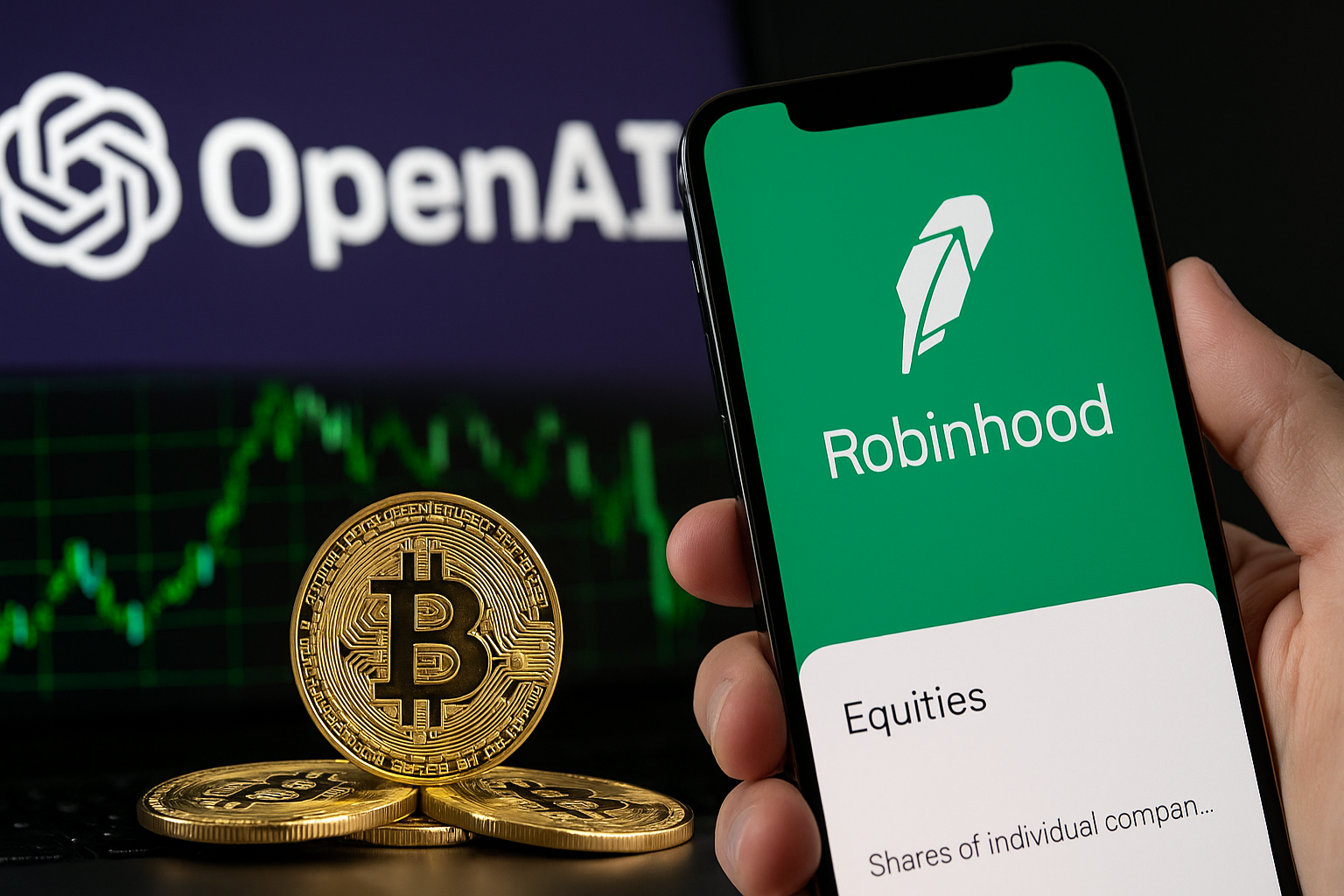In the fast paced world of financial innovation Robinhood’s tokenized equity products were poised to disrupt the traditional investment landscape. But a recent statement from OpenAI has cast a long shadow over these ambitions. The artificial intelligence giant has distanced itself from the offering raising fundamental questions about the legitimacy, structure, and future of tokenized private company shares.
OpenAI Casts Doubt on Robinhood’s Tokenized Equity Products: What Happened?
Earlier this year, Robinhood, the popular stock trading platform, made headlines by introducing a new line of tokenized equity products. These digital tokens were marketed as an accessible way for investors to gain exposure to private company shares, including shares from high profile AI companies like OpenAI.
But the excitement quickly turned into confusion when OpenAI cast doubt on Robinhood’s tokenized equity products, stating unequivocally that the tokens are not, in fact, company equity. Furthermore, OpenAI confirmed that it neither collaborated with nor endorsed Robinhood’s tokenization initiative.
This revelation has left many investors questioning the authenticity and security of these digital tokens, and it has sparked a broader debate about the tokenization of private equity markets.
Understanding Tokenized Equity and the Robinhood Offering
Tokenized equity refers to the process of converting ownership of company shares into digital tokens recorded on a blockchain. In theory, this technology democratizes investing by allowing fractional ownership and easier transfer of shares.
Robinhood’s tokenized equity products promised to offer exposure to private company shares by issuing blockchain based tokens that represent economic rights tied to those shares. However, as OpenAI has pointed out, owning these tokens is not the same as holding actual company equity.
Instead, the tokens are often structured through intermediaries or complex legal arrangements that create economic exposure to a company, but do not provide voting rights, direct ownership, or legal shareholder status.
OpenAI’s Firm Stance: No Endorsement, No Equity
The controversy erupted when OpenAI publicly stated that it had no involvement with Robinhood’s tokenized equity products. In a clear and direct statement, OpenAI emphasized that these tokens do not equate to actual OpenAI equity and that the company has not authorized any such offering.
This public distancing has ignited concerns not only about Robinhood’s product but about the entire concept of tokenizing shares of private companies especially those that have not given explicit consent.
The statement from OpenAI also raises potential legal questions. Are retail investors being misled? Does tokenization, in this case, cross into the territory of deceptive marketing or securities law violations?
Broader Implications for Tokenized Private Company Shares
The doubt OpenAI cast on Robinhood’s tokenized equity products reflects a deeper tension within the financial and crypto sectors. While blockchain technology holds the promise of transforming capital markets, its application to private company equity remains murky.
Legal experts point out that without clear regulatory frameworks and company cooperation, tokenized shares can create a false sense of ownership. Investors may believe they hold equity when, in fact, they only possess economic exposure through complex legal mechanisms.
Moreover! companies like OpenAI, which operate in high growth, high profile sectors may be especially vulnerable to having their names misused in the marketing of such products.
Investor Risks and the Call for Transparency
Retail investors, particularly those new to digital assets, are at risk of being lured into buying products they don’t fully understand. When major companies like OpenAI disavow any connection to these products, it highlights the potential for confusion and even financial harm.
The situation underscores the need for transparency. Tokenized equity products must clearly communicate what investors are and are not buying. Regulators may also need to step in to ensure that such offerings adhere to securities laws and consumer protection standards.
OpenAI’s Doubts: A Turning Point for Tokenized Finance?
The fact that OpenAI casts doubt on Robinhood’s tokenized equity products could mark a turning point in how the industry approaches tokenization. While the technology has immense potential, its unchecked use particularly without company consent risks undermining trust and derailing progress.
Industry analysts believe this incident could prompt regulatory bodies like the SEC to increase scrutiny of tokenized offerings. It may also lead to more stringent requirements for platforms like Robinhood to secure explicit company approval before offering such products.
The Path Forward: Responsible Tokenization
Despite the controversy, many experts believe tokenized equity remains a promising concept if executed responsibly. For tokenization to fulfill its potential, several conditions must be met:
Full transparency: Investors must have a clear understanding of what the tokens represent and what rights they confer.
Company consent: No private company shares should be tokenized without explicit approval from the issuing company.
Regulatory oversight: Tokenized equity offerings should comply with existing securities laws and be subject to regulatory supervision.
Investor education: Platforms must ensure that retail investors have access to reliable information and risk disclosures.
Without these safeguards, tokenized equity risks becoming another speculative fad that ultimately harms consumers and undermines trust in both blockchain technology and financial markets.
Heed the Warnings Before You Invest
The episode in which OpenAI casts doubt on Robinhood’s tokenized equity products serves as a cautionary tale for both investors and the broader fintech industry. While innovation is essential, it cannot come at the expense of transparency, legality, and consumer protection.
As blockchain based investment products continue to evolve, both platforms and investors must tread carefully. The future of tokenized finance is promising but only if built on a foundation of trust, clarity, and cooperation.


1 thought on “OpenAI Casts Doubt on Robinhood’s Tokenized Equity Products: Are Investors at Risk?”